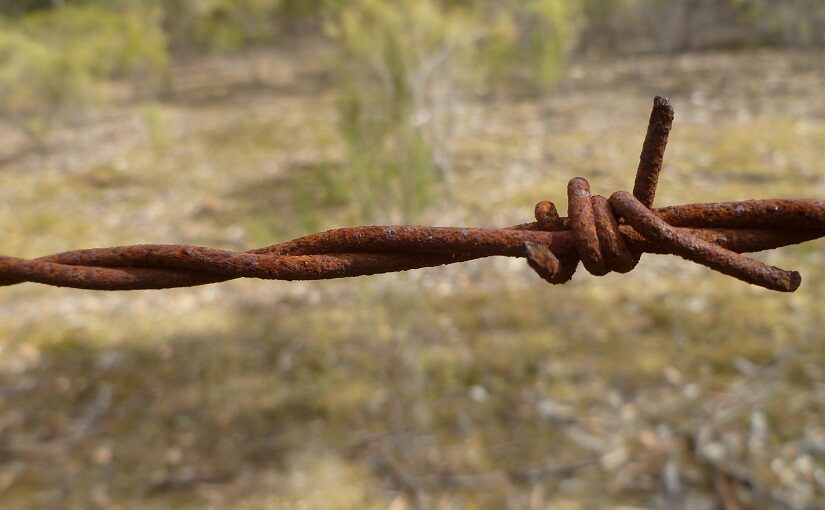Imagining freedom as this network of fine lines between us – all the choices we’re free to enjoy within society’s invisible contract, up to the point where those actions might infringe upon others – how much faith is being placed in our willingness and ability to use it wisely?
And how often, instead, are we conceiving of it more in terms of “I’m free to do as I please”, “you can’t stop me” or “what are they going to do about it?” This strange way we have of stretching limits, testing boundaries, and seeing if anyone cares enough to stop us. As an attitude, it seems present from childhood and perhaps it never leaves us – maybe it’s natural we test invisible walls to check if they’re real? (Notes One)
Isn’t freedom essentially this invisible construct of thought we’re attempting to bring into reality? This grand project of declaring people free then sketching out the conditions needed for that to work – figuring out all the lines where one person meets another and their freedoms risk being mutually incompatible (Notes Two). This pre-emptive defence of each person’s freedom through laying out everyone’s responsibilities.
And it’s amazing to think just how much the world’s changed since that project began: how far we’ve shifted from the fairly simple, reality-based communities of last century to the fast-paced, virtual reality of today (Notes Three). So much has been deconstructed, threaded back together and placed in our hands by way of technology – almost every area of life having been reworked by that way of thinking.
Aren’t our freedoms now feeding into countless inscrutable systems? Everything we do rippling out as an example or impact on others. Especially given the contagious nature of social behaviour and the “trends” of thought or action it quickly sets in motion. Sometimes it seems completely conceivable that freedom – at the extreme, careless greed and self-insistence – might be a force capable of destabilising the whole world.
If we’re free to do as we please with the options placed freely before us, what will we make of that opportunity? How much of the world’s resources will be pulled into meeting our seemingly insatiable desire for “more”? How many troublesome forces will we let run amok through communities, landscapes or lives? (Notes Four)
Maybe there’s no end to it, if no one stops us? “The law” might sketch in the boundaries where we’re at risk of doing harm to ourselves, others or society itself, but if freedom’s largely being seen as “doing whatever we like, as long as it’s profitable” then perhaps that overrules any concern we might have for the environment, social cohesion or human suffering.
But if, as citizens as much as consumers, everything we choose to do “matters” – our social, personal, political, economic, environmental, cultural choices deeply impacting the world we all share – then maybe freedom “must” come hand-in-hand with a weighty responsibility of understanding, compassion and self-discipline (Notes Five). Otherwise, aren’t we at risk of having it taken away for our own safety?
Notes and References:
Note 1: Invisible ties
Note 1: What keeps us in check
Note 1: Picking up after one another
Note 2: Authenticity & writing our own story
Note 2: Mutual awareness and accommodation?
Note 2: Having confidence in complex systems
Note 2: Trust within modern society
Note 3: Pace of change & getting nowhere fast
Note 3: How quickly things can change
Note 3: Social starting points for modern ways
Note 4: Freedom, responsibility & choice
Note 4: The insatiable desire for more
Note 4: At what cost, for humans & for nature
Note 5: What we create by our presence
Note 5: Freedom, what to lean on & who to believe
Note 5: Being trusted to use our discernment…
Note 5: Too much responsibility?
Ideas around preparing people for the responsibility of freedom – and, the things that might cause us to lose it – were one aspect of “Brave New World Revisited” back in 2017.

